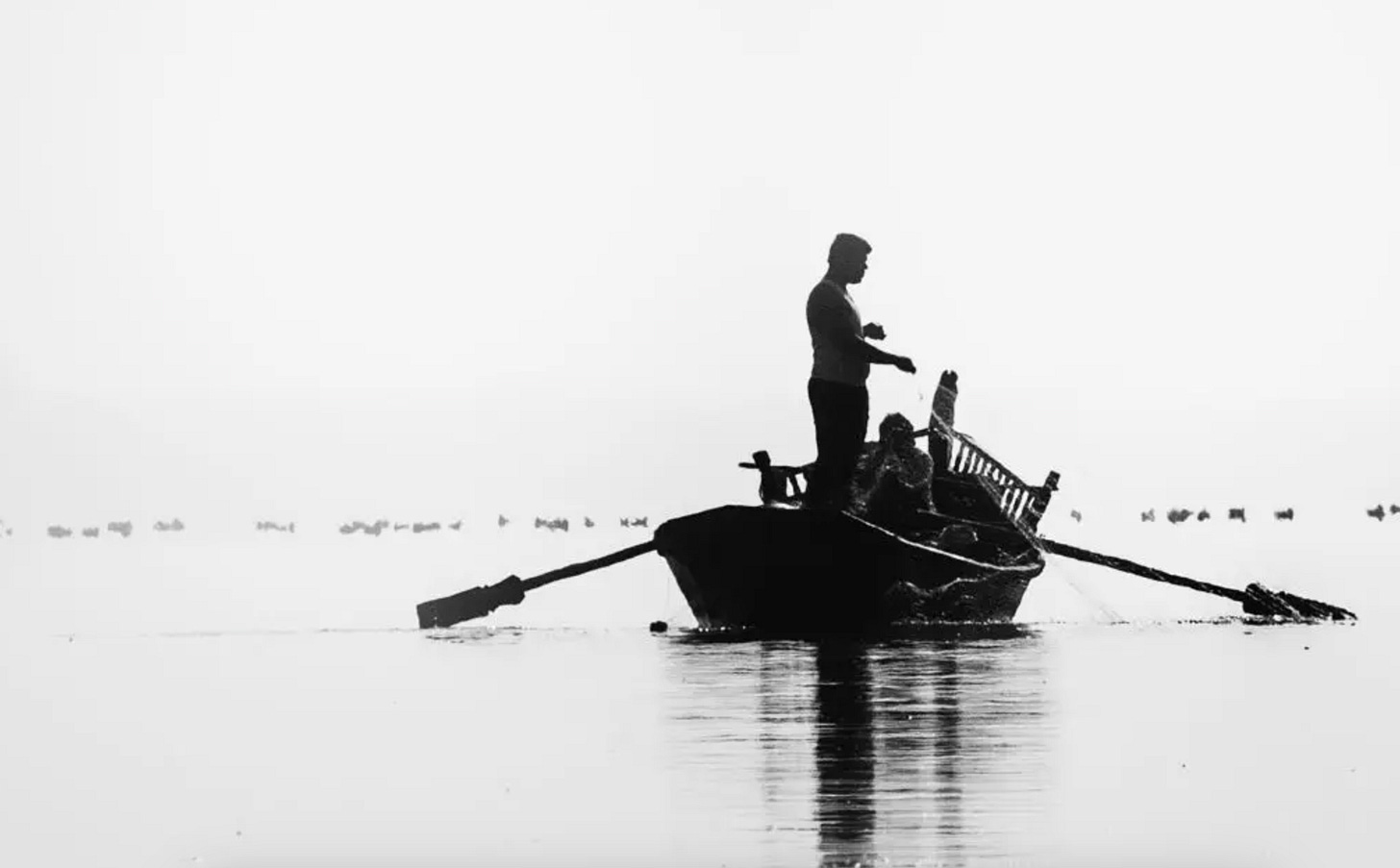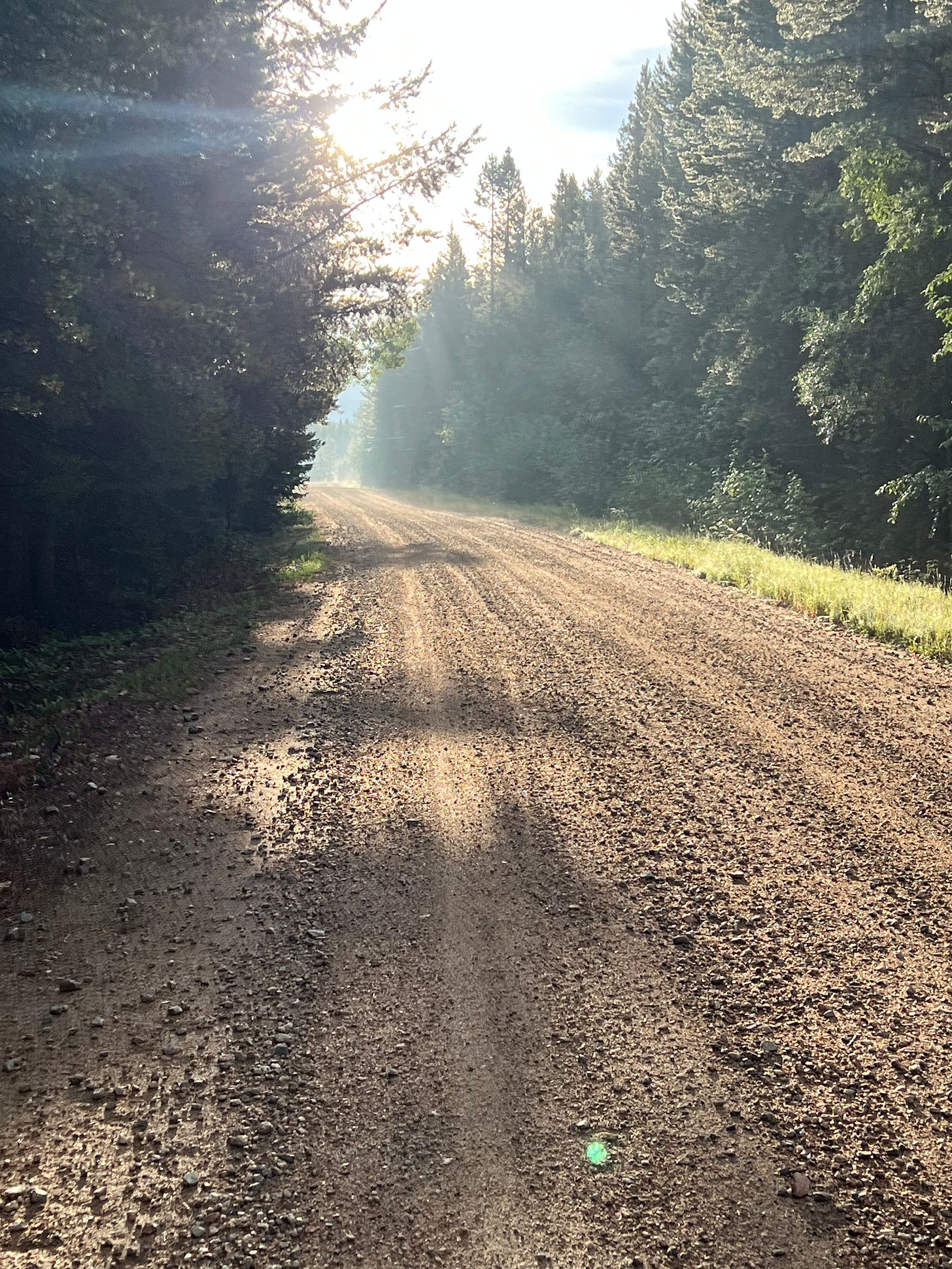What We Already Know.
Why Intuition Often Outperforms Data During Life’s Most Defining Periods.
Intuition appears in finite amounts, at unexpected times.
When we prioritize “being” over “doing,” - we derive answers from what we’ve known all along.
I walked away from my job at the end of 2024. My youngest daughter was diagnosed with profound hearing loss, and within weeks, the job’s travel demands came into conflict with the care she required.
Despite my daughter, intuition had long told me the job wasn’t the right fit. I wanted more time to write. More time to finish the half-written novel saved to my desktop.
That was eight months ago. My daughter is thriving, she’s achieving new milestones, and the novel’s been finished for weeks.
Therefore, on a recent trip to Fraser, CO, I couldn’t help but feel guilty being there. I questioned whether it was irresponsible, indulgent. Whether it was a relic of a past life that I should no longer be paying for.
During the early part of that trip, I was consumed by the question of what to do next. What the future holds, professionally. I weighed the benefits of returning to the corporate world. Then I’d spend hours convincing myself of the downsides. What would focusing on writing full-time look like? How much would it cost?
More than once, my wife would catch me, distant, looking anxious - my mind elsewhere - contemplating the future as if playing a game of mental chess. Every piece spread out, trying to see three steps ahead.
Amidst TRANSITION, amidst big decisions, there’s comfort in breaking it all down. Data-analysis. You inject logic, you circle the facts, and assign probabilities. It feels productive that way. Like an equation that can be solved once we define every variable.
In one of my all-time favorite stories, “On the Rainy River,” author Tim O’Brien reflects on what he describes as a “moral emergency,” more than twenty years later.
When he’s drafted to the Vietnam War in the summer of 1968, O’Brien rejects the idea immediately. He responds by stating the facts. He comes up with a dozen reasons why an exception should be made - all the reasons being drafted is an injustice. Why Vietnam itself is an injustice.
“I remember opening the letter — feeling the blood go thick behind my eyes. I was too good for this war. Too smart, too compassionate, too everything. I was above it.
The war in Vietnam seemed to me wrong. I saw no unity of purpose, no consensus on matters of philosophy or history or law.
After days of thought, O’Brien considers making a run for Canada. Deserting.
“In the beginning, the idea seemed purely abstract. The word ‘Canada’ printing itself out in my head. I’d borrow my father’s car, drive aimlessly around town, feeling sorry for myself, thinking about the war, how my life seemed to be collapsing.
For weeks he weighs his options. The consequences of going to war - the shame and guilt of deserting.
“I could see my father’s eyes as I tried to explain myself over the telephone. I could almost hear his voice. Run, I’d think, then impossible, it was a kind of schizophrenia. A moral split.”
In a near panic, O’Brien drives north toward the Minnesota-Canada border. Toward the Rainy River, the line of demarcation between one life and another.
There, he finds himself in solitude, in wilderness, suddenly more available to his thoughts.
“The land was mostly wilderness. The country unfolded in great sweeps of pine and birch and sumac. Though it was still August, the air already had the smell of October, football season, piles of yellow-red leaves, everything crisp and clean.”
Eventually, O’Brien finds himself at the Tip Top Lodge, where he meets an old man named Elroy.
Being at the lodge, O’Brien’s internal debate becomes less an intellectual exercise and more a consult with his intuition, his conscience - what’s already inside himself. What he already knows.
“I'd been over and over the various arguments, all the pros and cons, and it was no longer a question that could be decided by an act of pure reason. Intellect had come up against emotion.
In total, he spends six days with Elroy.
“There were no boats on the river, and the wilderness seemed to withdraw into a great permanent stillness.”
On the sixth morning, O’Brien and Elroy take off from the dock on Elroy’s boat, headed north.
“At some point, we must've passed into Canadian waters, across that dotted line between two different worlds, and I remember a sudden tightness in my chest as I looked up and watched the far shore come at me.
There was the wind and the sky. I tried to will myself overboard. I did try. It just wasn't possible.
I would go to the war—I would kill and maybe die—because I was embarrassed not to.
Elroy remained quiet. He was simply there, like the river and the late-summer sun. "Ain't biting," he said. Then after a time the old man pulled in his line and turned the boat back toward Minnesota.”
Later, during the second half of the trip, I spent at least an hour each day walking. Sometimes alone and sometimes a few feet behind a six-year-old, answering her questions and thinking amidst the endless miles of trail and fire roads that exist between the Town of Fraser and the Continental Divide.
There, amidst near solitude, the lens of decision making began to shift. Pragmatism became more difficult to connect with, while intuition became much easier.
Like in “The Rainy River,” maybe the answer isn’t in more data, or more research. Perhaps it’s something already known.
In writing this, I realized the decisions I’m most proud of, the ones most impactful, were all based in almost pure intuition.
Like many, I married my wife based on intuition.
I dropped out of college and joined the SEAL teams, entirely on intuition. To this day, I can close my eyes and remember trying to justify that decision to my father. Desperate for some statistic or some data point that would convince him it was a smart move.
There wasn’t one. If anything, the data would say don’t do it.
I think many would agree, during TRANSITION, intuition is often the last thing we consult. Something we consider only after the data has been collected and we still can’t find the answer.
“What’s your gut telling you?” we ask when someone has exhausted all forms of logic in trying to solve their problem.
I’m not saying we should ignore logic, or that every decision should be made based on gut feel.
What I am suggesting is that intuition is immensely valuable. It’s also subtle and requires effort to even hear from.
What we already know about ourselves should play a role in the way we navigate TRANSITION.
Intuition appears in finite amounts, at unexpected times. When we prioritize “being” over “doing,” we’re able to derive answers from what we’ve known all along.






In so many contexts we are taught to ignore the gut. We do so at our own peril. Great piece, Ben. Can’t wait to read the novel.
Solid. Love the inclusion of the O’Brien story. One of my favorites as well.